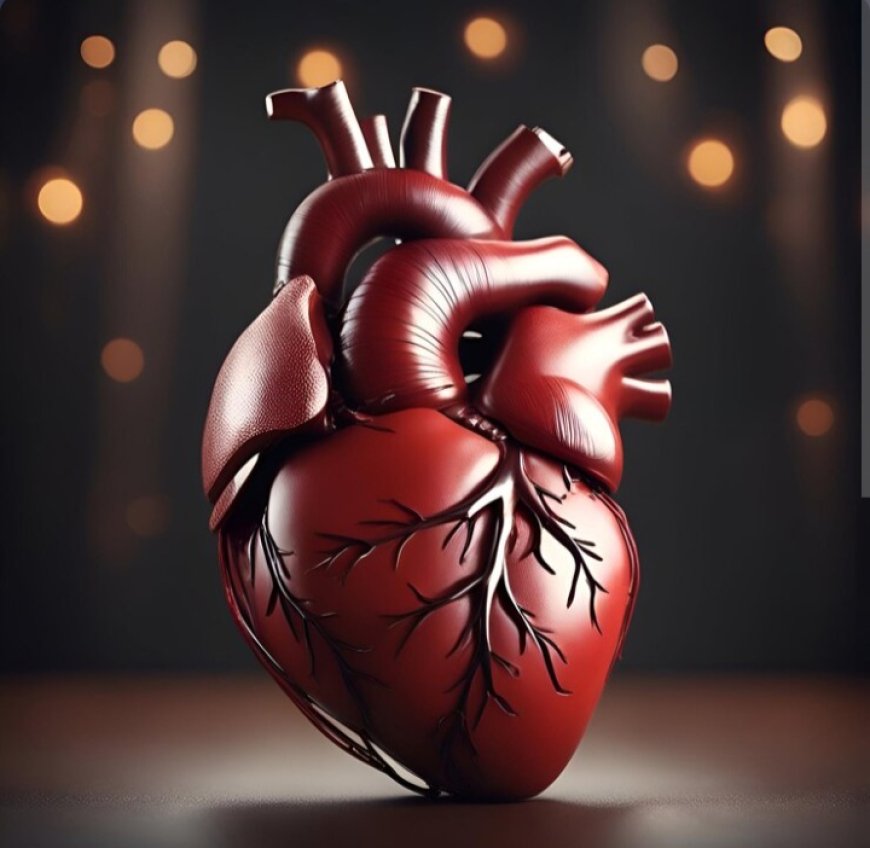Unlocking the Secrets to Vascular Health: A Holistic Approach to Clean Blood Vessels

By Brenda Gitonga
In 2019, the World Health Organization (WHO) reported a staggering reality—cardiovascular diseases (CVDs) claimed 17.9 million lives globally, constituting 32% of all deaths.
Heart attacks and strokes accounted for 85% of these fatalities, with 38% occurring prematurely before the age of 70.
According to World Heart Report 2023 says that in 2021, 20.5 million people
died from a cardiovascular condition, a figure that accounted for around one-third of all global deaths and was a significant increase from the 12.1 million CVD deaths recorded in 1990.
It goes further to say that globally, males have a higher age-standardized CVD death rate (280.8 deaths per 100,000 people in 2019) than females (204.0 deaths per 100,000 people in 2019) though this difference is not consistent across all countries.
CVDs, encompassing conditions like coronary heart disease and cerebrovascular disease, pose a significant threat to public health. The imperative to address this surge in cardiovascular cases has never been more crucial.
Understanding the role of blood vessels is key. Comprising capillaries, veins, and arteries, they play a pivotal role in sustaining the body's well-being by transporting oxygen, nutrients, and removing waste products.
However, the accumulation of plaque over time can lead to atherosclerosis, a condition where vessels become stiffened, compromising their efficiency.
According to Dr. Rudi Eggers, the WHO Country Representative, said most cardiovascular diseases could be prevented by addressing behavioral risk factors such as unhealthy diet and obesity, physical inactivity, harmful use of alcohol and tobacco use.
The path to clean blood vessels involves several key practices. Regular physical exercise, such as walking, jogging, or swimming, enhances blood circulation, aids weight management, and lowers blood pressure, contributing to overall cardiovascular well-being.
Embracing a mediterranean diet rich in fruits, vegetables, whole grains, healthy fats (like olive oil), and lean proteins supports cardiovascular health.
Omega-3 fatty acids found in certain foods reduce inflammation and maintain blood vessel flexibility, while antioxidants help counter cholesterol buildup.
Routine healthcare check-ups foster awareness of risk factors and prompt proactive lifestyle changes, crucial for maintaining a clean and efficient vascular system.
The significance of clean blood vessels cannot be overstated. They facilitate optimal organ function, improving energy levels and contributing to an overall healthier lifestyle.
Clean vessels are key in preventing coronary artery diseases, hypertension, peripheral artery diseases, and atherosclerosis, safeguarding against serious cardiovascular complications.
They prevent the formation of life-threatening blood clots that can result from plaque rupture, ensuring unimpeded blood flow to vital organs.
Uninterrupted blood flow supported by clean vessels is essential for proper brain function, reducing the risks of cognitive decline and disorders like dementia.
Healthy blood vessels ensure a continuous supply of blood to vital organs like the kidneys, promoting long-term health and a high quality of life.
Recognizing that up to 93% of disease cases result from vascular contamination underscores the importance of personal choices. The journey to clean blood vessels begins with conscious decisions that lead to healthy lifestyles and, ultimately, life longevity.
In conclusion, clean blood vessels serve as the cornerstone of good health, empowering individuals to take control of their well-being and unlock the secret to a long and fulfilling life.







